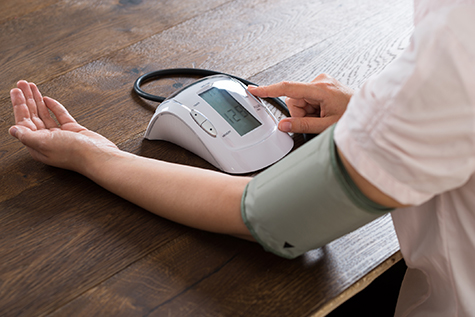5 Ways To Keep Your Brain Healthy

Too often, we neglect our brains when we think about our overall physical health. You may be trying to eat healthily or exercise more – but when was the last time you thought about the health of your brain?
That’s what we thought! But the health of your brain is absolutely critical to your overall well-being.
So read on, and see 5 of the simplest ways you can ensure that your brain is happy and healthy. These tips may help reduce your risk of developing Alzheimer’s and dementia later in life, and aid you in maintaining a healthier mind and body.
- Get Moving!
Exercise is one of the single most important ways you can fight back against Alzheimer’s, and develop a healthier brain.
A simple, low-impact exercise regimen as simple as walking 30 minutes a day can reduce your risk for issues like obesity, diabetes, high blood pressure, and a variety of other factors that have been shown to increase the risk of developing Alzheimer’s.
So if you want to keep your brain healthy, get out there – and get moving!
- Keep Your Heart Healthy
The heart-brain connection has often been overlooked – but understanding how the heart and the brain are linked is critical when it comes to maintaining a healthy brain.
Simply put, your heart is responsible for pumping blood all throughout your body, and that includes your brain. Because of this, heart problems can have a serious negative effect on your brain.
Issues like high blood pressure, uncontrolled blood sugar, high cholesterol, and other heart conditions have been shown to dramatically increase the risk of developing Alzheimer’s later in life, and lead to an overall lower level of brain health.
So if you have had heart issues in the past, or are worried about your risk of developing heart disease, take the appropriate steps to get treatment. Your heart – and your brain – will thank you.
- Avoid Excessive Alcohol Use
Excessive, regular alcohol use can have some serious negative effects on the brain. “Binge drinking” – having more than 4-5 drinks in a 2 hour period – has been associated with brain atrophy, dehydration, and dysfunction.
In addition, long-term alcohol abuse can cause alcoholic dementia – premature degeneration of the brain caused by the poisonous effects of alcohol.
There’s nothing wrong with cutting loose and having a few drinks during a night on the town, but the evidence is clear. If you want to maintain a healthy brain, avoid drinking excessively.
- Wear A Helmet!
Okay, this may seem a bit silly – but even a single concussion or traumatic brain injury (TBI) can increase your risk of developing dementia by 2-4x.
Multiple concussions can also dramatically increase the risk of developing CTE – Chronic Traumatic Encephalopathy. Common among football players, war veterans, and other individuals who are often exposed to high impacts on their brain, CTE can cause memory loss, motor control dysfunction, Parkinson’s, and eventually, dementia.
So if you’re participating in a high-risk activity like riding a bike or a motorcycle, or participating in a contact sport, make sure that you wear a helmet, and reduce your risk of traumatic brain injury.
- Get Your Beauty Sleep
Your brain needs rest, just like every other part of your body. There is a growing body of evidence that shows that sleep is when your brain can truly rest, reorganize, and even repair itself after the rigors of a long day.
This is one of the reasons that a lack of deep sleep is being investigated as a potential cause for Alzheimer’s – during sleep, the brain is cleansed of toxins and allowed to rest. Failure to get adequate sleep interrupts this process.
Chronic sleep deprivation has a number of other negative side effects, too – impaired cognitive function, an increased risk of developing mental illnesses such as depression or anxiety, and even an inability to form short-term memories or to remember how to perform simple tasks.
So even if you’re pulling a 12-hour shift, or you’ve gotten stuck on night duty for a few days, make sure that you take a nap during the day, and that you get an enough sleep to keep your brain happy and healthy! The National Sleep Foundation recommends 7-9 hours per night for healthy adults.
Follow These Tips For A Healthier Brain!
Whether you’re trying to reduce your risk of Alzheimer’s, or you just want to ensure that your brain is in tip-top shape, these tips are sure to help! Start using these quick tips today, and take the first step towards a healthier brain!
And to get involved in educating others about the link between brain health and Alzheimer’s, feel free to visit the Alzheimer’s Foundation, and get involved in National Alzheimer’s & Brain Awareness Month! Their website is jam-packed with useful information, tips, and statistics about the fight against Alzheimer’s!





